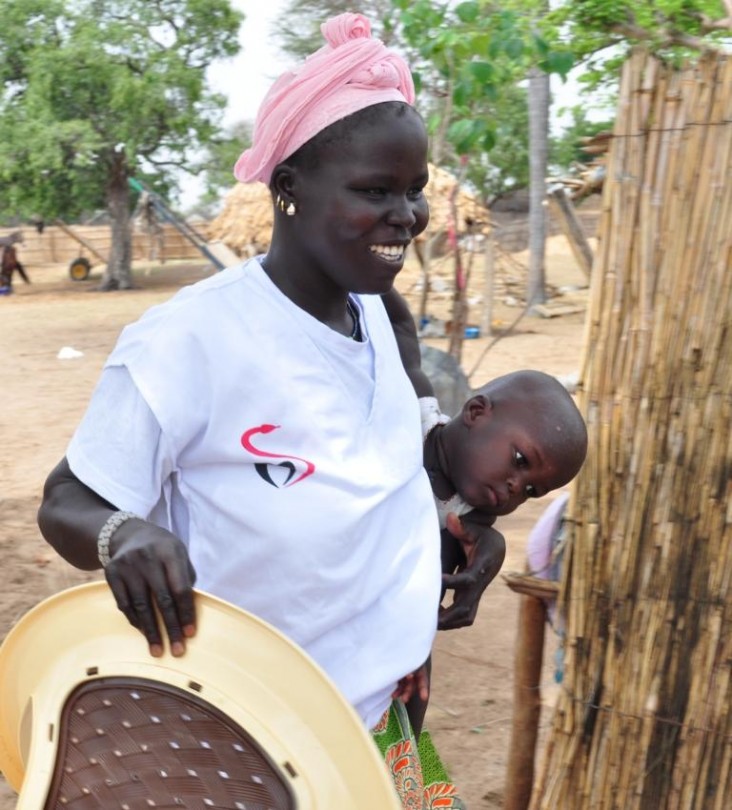
Over the past 30 years, Senegal has expanded access to health services by shifting them deeper into its rural communities, where over 42 percent of the population still lives and where – in certain villages – only 12 percent of the population can access public health services annually. This movement is exemplified by Senegal’s growing number of community health workers, including home care providers, who are chosen and compensated by the communities they serve.
The home care providers, who work in villages more than five kilometers from the nearest health post, are key to Senegal’s fight against malaria, one of the primary killers of children younger than 5 years old. In the small, rural village of Bakapome, Mbène Dionne is the local home care provider, serving over 1,000 people in four villages.
Called Dispensateurs de Soins à Domicile or DSDOM (home care providers in French), volunteers like Dionne have helped reduce Senegal’s in-hospital deaths due to malaria by 62.5 percent since 2009. This has had such an impact that the Government of Senegal and the President’s Malaria Initiative, through USAID, have begun to expand the DSDOM’s services. As part of the initial pilot, Dionne and 86 other home care providers have been trained to treat malaria, pneumonia and diarrhea, three of Senegal’s most deadly childhood diseases.
This pilot program has made a substantial difference, at least according to Dionne’s neighbors in Bakapome. Although she admits to having had no medical experience when she was selected as a DSDOM, Dionne is proud to have “now been trained to monitor infant growth, encourage healthy behaviors, and manage cases of malaria, pneumonia and diarrhea.”
She says she also now knows “how to recognize the signs of serious illnesses and refer clients to the Aguiyaye health post” (seven kilometers away). Aguiyaye’s chief nurse visits Dionne twice a month to provide advice and ensure that she has all the supplies she needs. One of Dionne’s patients, a young mother named Aissatou, confided that, “this is just what we needed here in this community: someone to help us ensure our kids are healthy.”
Dionne’s success is being replicated nationwide. In six months, the DSDOM volunteers treated 3,177 children under age 5: 413 for malaria, 985 for pneumonia and 922 for diarrhea. Without the care of volunteers like Dionne, many of these children would not have been able to reach care in a timely manner—if at all. Through her service, Dionne is helping save children’s lives and build a bright, healthy future for her country.







Comment
Make a general inquiry or suggest an improvement.